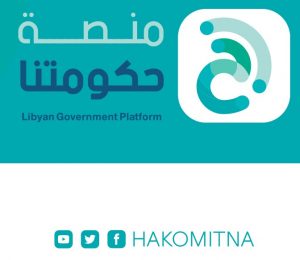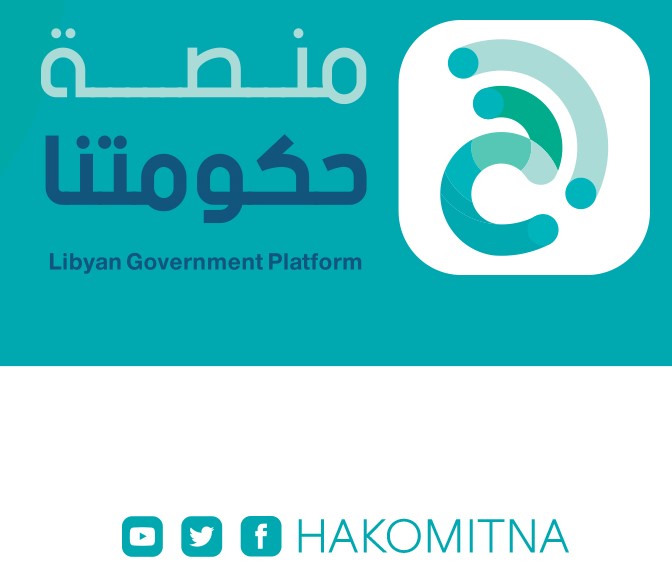By Sami Zaptia.

London, 9 April 2021:
The Libyan government has launched ‘‘Hakomitna’’ (our government), an interactive electronic platform for communication between the government and the entire Libyan people.
The platform was launched Minister of State for Communication and Political Affairs, Walid Al-Lafi, which he said was a pioneering experiment to bring citizens closer to, and interact with, the government’s political, economic, service and humanitarian activities.
Minister Al-Lafi, speaking during a meeting Tuesday (6 April) with directors of media offices in all state institutions, discussed the concept of government communication and the government’s plans in the field of communication and transfer of information and ensuring the flexibility of its flow to citizens, through official channels.
The minister provided a detailed explanation about the e-government platform launched by the ministry to publish all news of state institutions and provide electronic services to citizens through it, through the ministry’s cooperation with its various managers of media offices.
The Minister also announced during the meeting his desire to launch a detailed training programme for managers of state media offices, each according to their specialization and vision.
Analysis
The information and media output of the post-Qaddafi-era Libyan state and its government agencies has been weak and old fashioned. It has often found itself playing catchup and fire-fighting in the face of an onslaught of media and particularly social media rumours and fake news. The state media system, a Qaddafi-era legacy, is overemployed with little effective output in line with modern times.
The new unified Libyan government has created what amounts to an information ministry. This was, sadly, not necessarily as a result of clear strategic planning, but forced by realpolitik. It had to create enough ministries to satisfy many power centres to ensure it received endorsement through parliament.
However, the state already has multi-information agencies. The new entity through the Minister of State for Communication and Political Affairs is in danger of creating further duplication and an overlapping of responsibilities. It is unclear, beyond a nifty new app, what added value it brings to the burgeoning state media bureaucracy.
For example, it is unclear where the responsibility of the state media agency and its TV and radio stations, the state news agency LANA, the official spokespersons for the government and Presidency Council and this new Hakomitna entity starts and end.
Judged on performance
Ultimately, this government’s term should in theory end with the elections of 24 December 2021. It will, therefore, be judged on its performance – a performance that in the business of media and information cannot be hidden and will be under attack everyday.
Trust and delivering results
One of the main reasons the Libyan public tends to believe social media rumours and fake news is their mistrust in their government and state institutions. This is partly due to the 42-year Qaddafi era legacy of lies and fake alternate worlds created by that regime, but also partly due to the weakness of the post 2011 administrations.
Successive post 2011 governments have failed to perform and deliver public goods and services. This has lost them legitimacy and trust. Hence, no matter how many information/communications (propaganda) agencies a Libyan government creates – it will be judged by results.
In Libya, these include: security, electricity, liquidity at banks, supplies of basics at affordable prices (food, petrol, diesel, cooking gas etc), improving purchasing power, availability of hard currency, better health services, mitigating the perception of widespread corruption by the governing elite, delivering legitimate, transparent, accountable and democratically-elected governments seen to be working for the people not for themselves.







